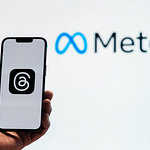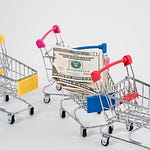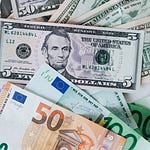This week's episode discusses key takeaways from the Fed’s press conference, how companies are preparing for a recession, and the big tech earnings.
The episode is based on yesterday's newsletter which is available on Substack.
This week, we have made available a transcript of this podcast, with relevant images and quotes, for ALL subscribers this week. Find it after the show notes below. Become a paid subscriber to support our work.
Show Notes
00:00:00 Introduction
00:00:15 What is a Recession?
00:02:40 Debt markets are reeling
00:04:29 COVID-era trends are reversing
00:05:57 Some Early Recession Indicators
00:07:22 Meta: From Social to Interest Graphs
00:11:17 Conclusion
Episode Transcript
Introduction
[00:00:00] Scott: Welcome everyone to a new episode of The Transcript podcast. You've got me, Scott Krisiloff, I'm editor of The Transcript, along with Erick Mokaya who's our lead author.
What is a Recession?
We sent out a new issue of the newsletter yesterday and last week was a heavy earnings week. And it was in addition to a Fed meeting. I think in the macro section, the biggest thing was that the Fed raised interest rates by another 75 basis points, signaled to the market that they may slow the pace of increases a little bit, but still sounded very committed to large, significant, additional tightening going down the line. That was one of the biggest events of last week. Erick, any thoughts?
[00:00:39] Mokaya: I think that was the biggest thing last week, that and the GDP and the fact that the US is now in a technical recession. But then like the day before the Fed chair himself was saying that there is no recession. And the next day the technical recession numbers came in. A question I wanted to ask you was why is it that the current administration they're very keen, especially on the definition of a recession, is it because there are elections coming up? And by the, what's the definition of a recession in the US? Who defines it? NBER right?
“The NBER's traditional definition of a recession is that it is a significant decline in economic activity that is spread across the economy and that lasts more than a few months. The committee's view is that while each of the three criteria—depth, diffusion, and duration—needs to be met individually to some degree, extreme conditions revealed by one criterion may partially offset weaker indications from another” [NBER]
[00:01:07] Scott: Yeah, exactly. It's an interesting question. I think in my experience, it's a relatively modern concept that two periods of negative GDP growth equals a recession, a technical recession. At least as it's been defined in the United States or the historical bookkeeper of recession is the NBER. They decide what is the recession and what isn't the recession based on our databases. And my experience is that it's most strongly correlated with a rise in unemployment. So if you start to see a rise in unemployment, then typically the NBER will term that period of recession. But if you don't see any rise in unemployment, I've seen multiple times where there were weak cycles and the NBER didn't term it a recession, I think 1966 was one that comes to mind where you actually had a pretty strong financial storm blowing through. And I don't think that there was a recession during that time or at least one that was recorded.
“Most of the recessions identified by our procedures do consist of two or more consecutive quarters of declining real GDP, but not all of them. In 2001, for example, the recession did not include two consecutive quarters of decline in real GDP” [NBER]
[00:02:02] Mokaya: What's your call here?
[00:02:04] Scott: Well, I think that's what we should talk about next. The rest of the newsletter this week picked up a lot of early recession indicators. So the one that's probably the most important to talk about is credit markets where you have Lazard, Moelis and Aries Capital, a BDC company. All three of them were talking about dislocations in credit markets. And the quote that really stood out to me was Lazard saying everybody went from being laser-focused on rising interest rates to people are now laser-focused on recession. And so credit markets are usually more savvy when it comes to recession than equity markets. And there seemed to be signs there that I was reading that credit analysts are concerned about a recession. Any thoughts on that?
Debt markets are reeling
[00:02:40] Mokaya: Yeah, I think one of the things that stood out obviously was the fact that debt markets are heavily challenged and right now it's actually easier to raise equity than debt. So I was wondering is that also an early indicator of recession and before that also as regularly as we've been noting the past couple of weeks, demand is still strong. But companies are preparing. And my favorite quote, I think from that part, was the one from Spotify who said it's only the paranoid that survives. So yes, everything may be going on well, but you look ahead and you're like, okay, let's prepare for as tough times as possible. So that if those tough times don't come, at least we are prepared for it. And that I think was the tone I got from the Facebook earning call that I read this week. So any thoughts, especially on the fact that they can raise equity faster than debt, is that usually an indicator of recession?
[00:03:27] Scott: Yeah. In some ways, the data that we're seeing now is more consistent with classic early recession data. And so, as we're talking here, I'm wondering if maybe what we have been seeing in terms of the bear market was really like the post-COVID recession era, like the return to some sort of normalcy and increasing interest rates. And now what you're seeing is the classic yield curve inversion, classic credit markets starting to lead, consumers starting to trade down, advertisers pulling back. Those are all pretty classic early recession indicators. Which would say to me that maybe the recession, I mean, the title of our newsletter this week is what's priced in. And I think that's the most important thing because clearly, the Fed is signaling it's still planning to tighten. It's not getting looser. And then you have these recession indicators coming. So, did we price it in a pretty nasty recession? Or did we price it in a recession at all? I think to some extent we did, but would equity markets be surprised from this point if economic data begins to soften? I think the answer is maybe.
COVID-era trends are reversing
“We bet that the channel mix - the share of dollars that travel through e-commerce rather than physical retail - would permanently leap ahead by 5 or even 10 years…What we see now is the mix reverting to roughly where pre-Covid data would have suggested it should be at this point. Still growing steadily, but it wasn’t a meaningful 5-year leap ahead" - Shopify (SHOP 0.00%↑) CEO Tobias Lütke
[00:04:29] Mokaya: Interesting. I think when you talk about some of the early indicators of the recession, I think that the pattern which I noticed last week was obviously the ad markets. The ad markets are really heavily challenged starting from Facebook. They see a really tough time ahead. Shopify, eCommerce was the biggest trend in the pandemic. It's retracing its roots back to normal levels in terms of growth. I don't know if you've seen the chart it’s like it went up and then it's back down to the normal trend where it could have been had COVID not happened.
Source: Shopify
So I think some of the other trends that we're noticing is that also people are eating out a bit more. They're going back out. In terms of people ordering online, it has also gone down significantly. And obviously, across some of these companies, they're all preparing for the tough times as we’ve said, from Facebook to Google themselves freezing hiring to Shopify themselves firing around 10% of the workforce. So you feel like all these companies, they're big companies, they are actually preparing for the worst ahead for them. Apart from that also, you see Cloud is still a very strong part of growth which can also be an indicator of recession time because that's when companies are cutting down on costs and seeking efficiencies and one of the most efficient ways to actually do business might actually be putting your business online, and maybe storing that data in the cloud. So that's why you saw a cross-board for Microsoft, Amazon, and Google, all of them posting strong, double-digit growth in terms of cloud revenues and Google search. Those are some of the things that I picked up across tech and tech earnings this past week, anything that stood out for you?
Some Early Recession Indicators
[00:05:57] Scott: Yeah, I think the consumer section is what stood out for me. And as we were talking, the early recession indicators, things like multiple companies talking about consumers trading down to more private labels. And then another comment by Moelis stood out to me was he was talking about the credit markets tightening and he was saying capital markets have been prepared for a hurricane and the only segment of the economy that hasn't really been prepared is the consumer. And so you have had this long period that we've been watching, where consumers have been spending and spending and spending, and they've had all of this extra spending power from all the stimulus that came through during the COVID era. And there are some signs where it seems like consumers may be reaching their limits of the ability to sustain these sorts of inflation rates, and then also their ability to spend into those inflation rates. So, the counterbalance of that is unemployment is still very low and there's still pretty strong labor shortages.
[00:06:55] Mokaya: It's a tough thing to read, to be honest, because unemployment's very low. A lot of companies are saying hiring is still such a challenge. I certainly think McDonald's CEO was saying something like they have a lot of new people and because they've had to keep hiring a lot. And right now, one of their challenges is efficiency. The lines are not moving as fast as they would expect in normal times when you have employees who know their job and all. So I think hiring is such a challenge for some of these companies and unemployment again is still pretty low. Yeah, that's what I would say also.
Meta: From Social to Interest Graphs
But one thing that I wanted to discuss a bit is your favorite company, Meta. I mean, they had a really tough quarter. But it seems like the challenges of TikTok are slightly behind them. They're moving to replicate TikTok. They were the same way they did, I think three or four years ago with Snapchat. Snapchat launched stories, and then they took it, replicated it, it boosted their growth in terms of Instagram, and then they put it to Facebook, and now Instagram is becoming their test ground also for a feed that looks more like TikTok. And there's been a lot of resistance from users who don't want Instagram to look like TikTok.
Source: Stratechery
But again, the statistics show that people are enjoying the reels that are being posted. They're sharing them on DMs. The monetization is not as strong as it was, but it looks like it's better than it was for stories back in 2018 when they started it off. I think it looks like a company and one of the quotes from the wisdom section that stood out for me was him saying that what they do now is trying to iterate it as fast as possible to try as many things as possible. He's saying a lot of that going ahead, the company is going to be focused on increased intensity in terms of focus, doing more with less. So what's your takeaway from Facebook, Meta right now? I'm not sold on the metaverse myself. I'm just impressed by the execution, especially in terms of dealing with TikTok as a challenger.
"Right now, about 15% of the content in a person's Facebook feed and a little more than that of their Instagram feed is recommended by our AI, from people, groups, or accounts that you don't follow. And we expect these numbers to more than double by the end of next year. As our AI finds additional content that people will find interesting, that increases engagement and the quality of our feeds." - Meta Platforms (META 0.00%↑) CEO Mark Zuckerberg
[00:08:38] Scott: Yeah, I think the biggest thing I'm taking away from what's going on at Meta right now is the growth in short-form video across most social media platforms. So anybody who is engaging with those platforms from a business growth standpoint, using these as major channels for customer engagement should be aware that the algorithms are changing. And Facebook and Instagram are pushing more short-form video. I've noticed it in my Twitter feed as well. Just more short-form videos popping up. We had a quote from YouTube talking about short-form video. And so the algorithms which are extremely powerful on these platforms are actually actively promoting short form video because there's higher engagement rates and greater opportunities for monetization. So one of the things that Facebook said is I think they said only 15% of content right now is from third-party content generators. And they're going to be bringing that to 30% over the next, I think it was about 18 months and you've gotta believe based on everything they're saying in the strategies, that's gonna be predominantly short-form video. So for people again, who are engaged with these platforms, use them as an important outlet for advertising, for content growth, whatever it is, be making more short-form video. I think it is something that you need to think about. So The Transcript, Erick, we need to figure out what's our short form video strategy.
"Taking a closer look at YouTube. YouTube Shorts are watched by over 1.5 billion signed-in users every month with more than 30 billion daily views. In Q2, YouTube TV surpassed 5 million subscribers, including trialers. There's also a lot of potential for shopping on YouTube. Just last week, we announced a partnership with Shopify - Alphabet (GOOGL 0.00%↑) CEO Sundar Pichar
“Reels engagement is also growing quickly. I shared last quarter that Reels already made up 20% of the time that people spend on Instagram. This quarter, we saw a more than 30% increase in the time that people spent engaging with Reels across Facebook and Instagram” - Meta Platforms (META 0.00%↑) CEO Mark Zuckerberg
[00:09:56] Mokaya: I think we should, we should actually be having a short form video. We used to have those short clips, I think it's time now to revive ourselves in that direction because we probably need to, I think we do. What I've noticed a lot also on Twitter is that a lot of short-form videos, because they're short, it's like one minute long, you find like they have a million plus views sometimes. And it's shocking how fast these videos go. You don't need to engage with them for very long. Short and straight to the point. That's kind of what is taking off on most social media platforms. Again, a core thing, which you've mentioned, Facebook themselves, they're changing more from you seeing content from your friends only. Now they're moving from the social graph to the interest graph, where they want to link you to interesting stuff across the platform, which you may like, which are not necessarily from your friends. There will be a little bit of resistance, especially from the core audience of let's say Facebook, could be boomers mostly I would say who may not be interested in social interests across platforms and all, but the younger generation is more oriented towards good content that is flowing from across all these other social media platforms. It doesn't matter where it comes from, as long as it's good they want to see it. I think that's what Facebook is tapping into and they're really known for tapping into current trends to grow and to keep monetizing. I would not bet against Zuckerberg after reading the latest earnings call. That's what I'd say. I dunno if I can bet with him, but I can't bet against him.
Conclusion
We can close there for this week. Thank you for joining us. Once again, keep subscribing to a newsletter. We'll keep giving you the best quote calls each week. See you again next week and thank you.
















Share this post